Click here and press the right key for the next slide (or swipe left)
also ...
Press the left key to go backwards (or swipe right)
Press n to toggle whether notes are shown (or add '?notes' to the url before the #)
Press m or double tap to slide thumbnails (menu)
Press ? at any time to show the keyboard shortcuts
Reciprocity
reciprocity
Why suppose, in advance of considering the details, that interaction might provide us with routes to knowledge of other minds?
[*todo: replace talk of mindreaders!]
A mindreader's target is often also a mindreader and may sometimes reciprocate by taking the mindreader as a target for mindreading.
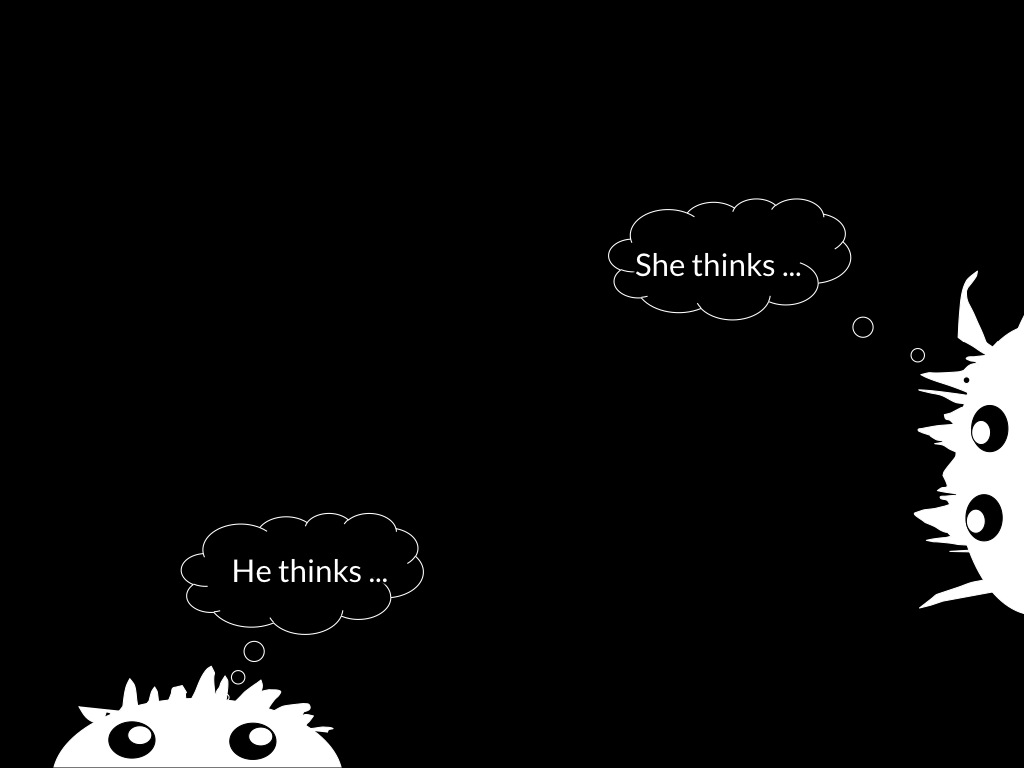
reciprocity
It ought to be possible, in mindreading, to make use of this reciprocity.
But how could such reciprocity facilitate mindreading?
If we assume the mindreader is merely observing her target,
that there is manifestly no potential for interaction,
then it seems that any way of exploiting reciprocity would involve higher-order ascriptions.
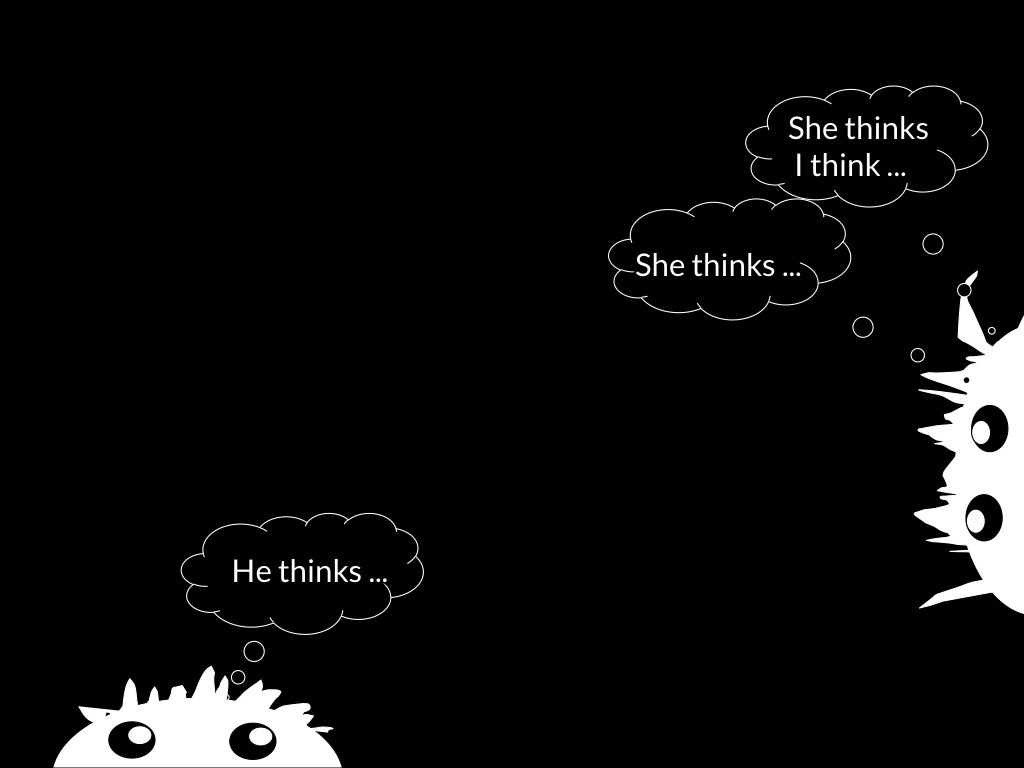
reciprocity
The mindreader would ascribe to her target beliefs (say) about the mindreader's own beliefs and other mental states.
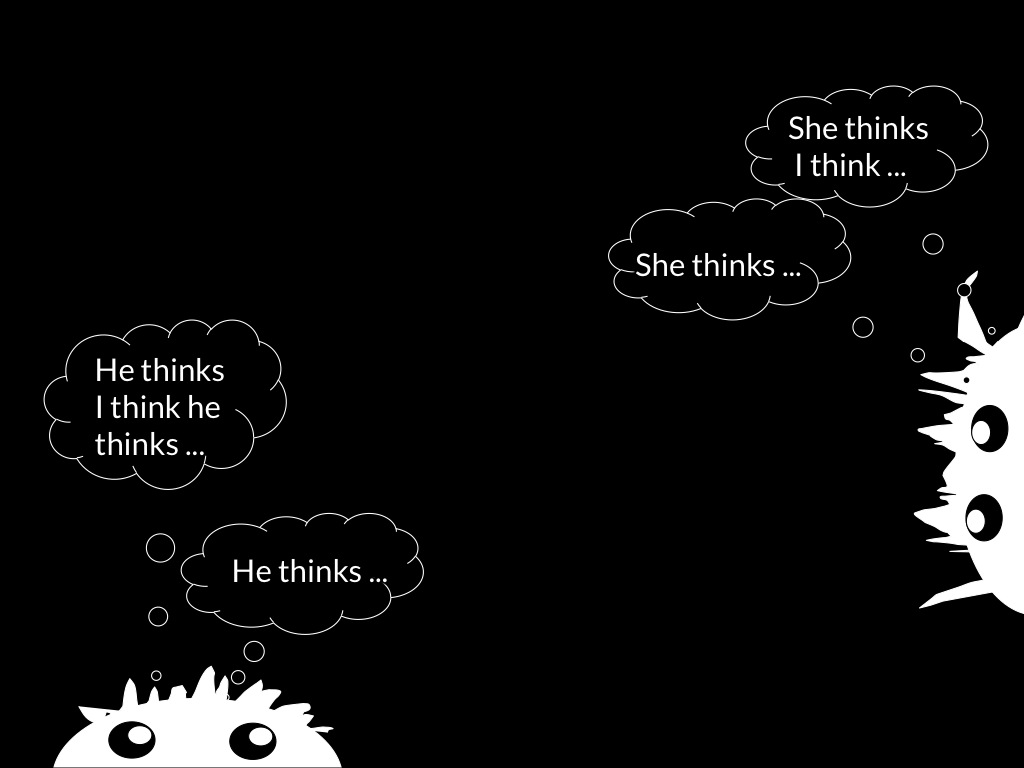
reciprocity
And if her target reciprocates, she might escalate by ascribing to the target beliefs about her own beliefs about the target's beliefs about her beliefs.
While this might be useful in some situations,
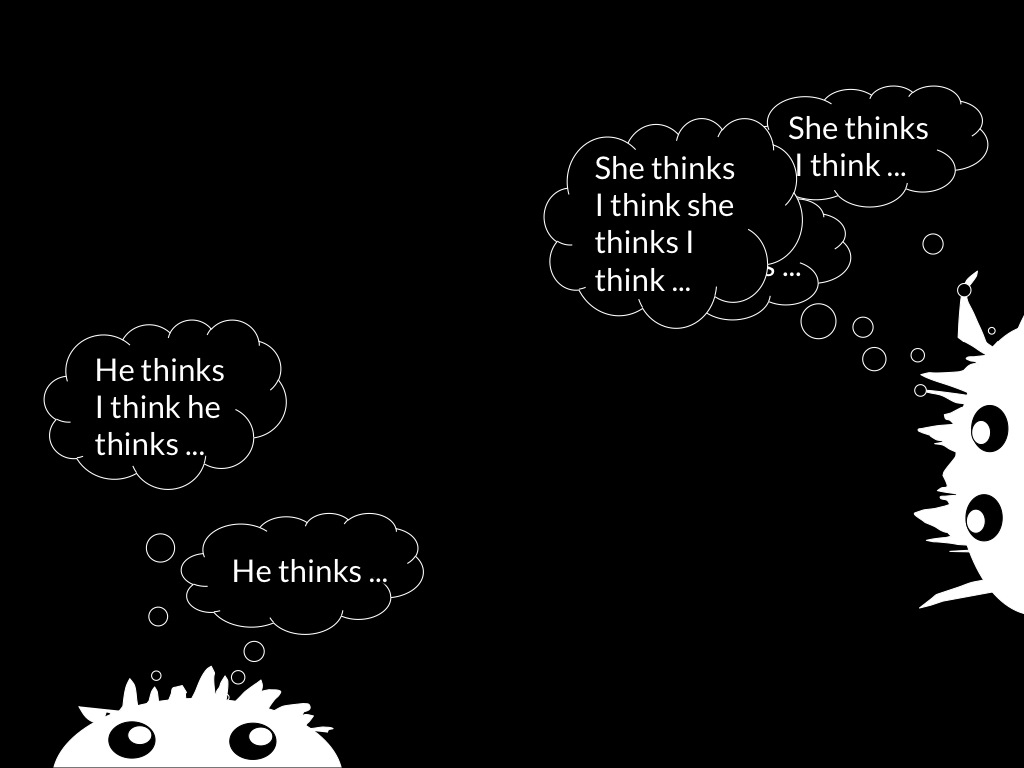
reciprocity
the nesting this approach requires quickly becomes dauntingly complex.
And the basic intuition about reciprocal mindreading goes unsatisfied.
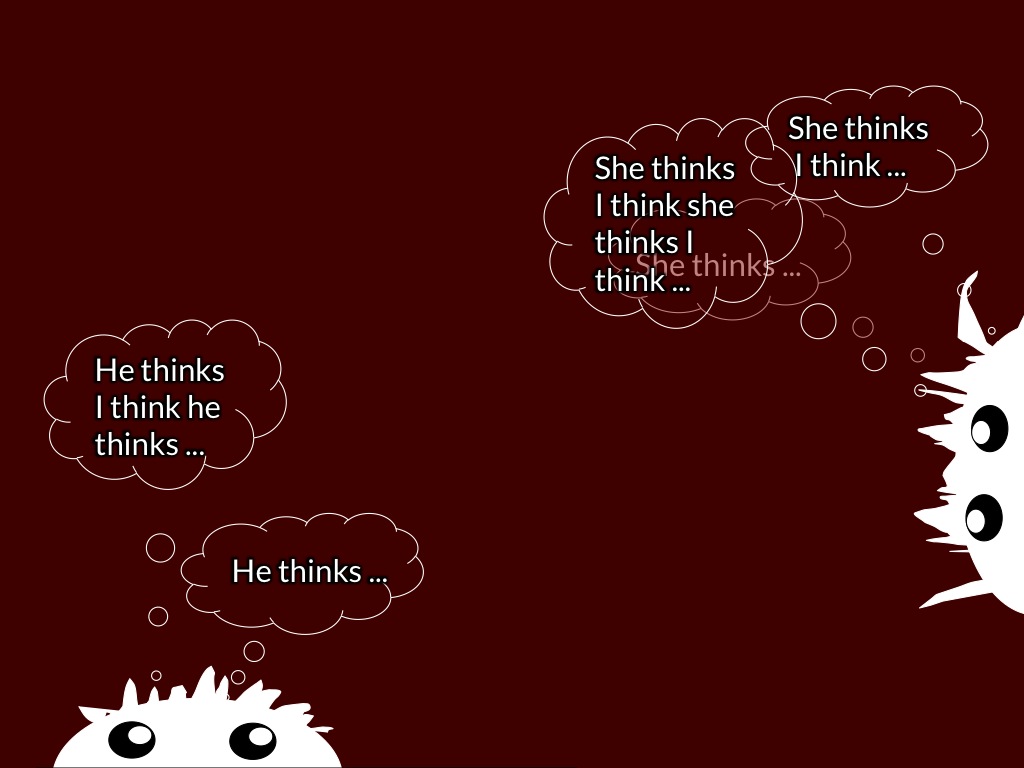
reciprocity
without escalation
Reciprocal mindreading should sometimes result in
something like a meeting of minds
rather than
an escalation of higher-order ascriptions.
Perhaps fully exploiting reciprocity in mindreading
requires the mindreaders to be in a position to interact with each other;
perhaps in some cases
being or appearing poised to interact
can somehow enable mindreaders to exploit reciprocity without first having to ascribe higher-order mental states.
This is the hunch we develop in what follows.